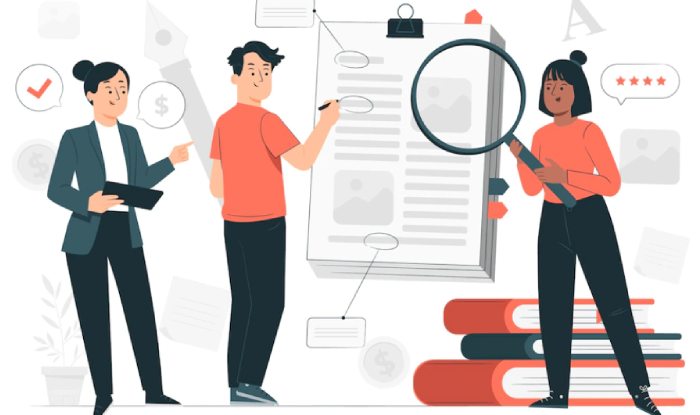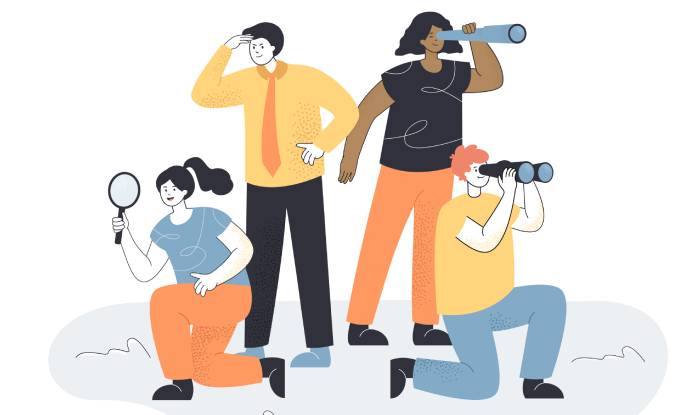Many business owners have never used a formal discovery session when undertaking a complex digital project. We routinely see co-founders approaching us with complex projects (e.g. development of a large fintech or eCommerce application), where there are multiple functionalities, integrations & user personas. In some cases, the team has clarity on what they want to develop as their MVP or 1.0 version of their application.
But what to do if the details are not yet in place. The details could be the user flows, features, capabilities, and integrations required in the application. In the case of marketing projects, these could be insights, buyer behavior, and personas. Sometimes, business owners may not realize the impact on timelines or budget that certain features may have on their application. For E.g. asking for an ML-based consumer purchase propensity modeling before having enough data on the platform, may not only impact time & budget but also be impractical to implement.
 In these situations, we recommend that clients do a paid ‘discovery’ session prior to initiating the project. This can avoid a lot of confusion (internally & externally) before the project enters the execution phase. This is an invaluable exercise in freezing the entire scope of the project. Else, clients might feel the agency is not living up to the ‘vision’ of the project. On the other hand, the agency might feel the client is adding elements into the scope that were never part of the project.
In these situations, we recommend that clients do a paid ‘discovery’ session prior to initiating the project. This can avoid a lot of confusion (internally & externally) before the project enters the execution phase. This is an invaluable exercise in freezing the entire scope of the project. Else, clients might feel the agency is not living up to the ‘vision’ of the project. On the other hand, the agency might feel the client is adding elements into the scope that were never part of the project.
A ‘discovery process’ will help ensure that everyone internally & externally is on the same page and that you get the best results possible from your investment. In our experience, inviting proposals from agencies before a discovery process is not a desirable way to proceed with complex digital projects.
What is a discovery process?
A discovery process is a period of research and investigation that is conducted before starting a project. The purpose of the discovery process is to gather information about the project, identify risks and potential problems, and create a plan for how to proceed with the project. The most important aspect of the discovery process is a structured discussion with owners/leaders of the business about the objectives, user journeys, and desired outcomes. It is not uncommon to also spend some time reviewing competition (whether direct or indirect) and reference URLs or applications.
While specific steps of a discovery process will depend on the exact nature of your project, some of the important steps at a high level are given below.
- Define the goals of the project
- Understand the audience for the project
- Research the competition
- Identify risks and potential problems
- Create a plan for how to proceed with the project
While discovery processes can vary in length and complexity, we generally recommend allotting at least two weeks for the same. This will ensure that you have enough time to gather all the information you need and make informed decisions about how to proceed with your project.
Outcomes for a discovery process depend on the nature of the project. For a web or mobile application, it can be user journeys, wireframes & even a BRD (Business Requirement Document). For marketing projects, it can be documentation of key customer segments, insights, USPs, RTBs, platforms & key metrics to focus on. What is common is that at the end of 2 weeks, you have clarity and documentation for everything that needs to be done in the project. In fact, you can even walk away from the agency with which you did the discovery and seek competitive proposals on your (now very clear) brief. Or you can ask the same agency to execute and absorb the cost of discovery in the eventual project.
Admittedly, all complex projects have a discovery session. However, if you have already frozen the entire project value with the agency before the session, a discovery session may not be as effective. Some agencies may try to reduce the scope of work, while some clients may try to increase it, in this scenario – as the outlay on the project is already decided!
This is why we recommend that clients invest 15 days and ~5-7% of their project budget (for complex projects) on a ‘paid’ discovery session. Also, it is best done with an agency with significant domain expertise for your project. This can help you not only learn from their experience but also have external validation for your business model. This is an investment that will more than pay for itself in the clarity and smoothness with which the project will eventually get executed.
If you have a complex digital project for which you want to get a 15 day paid discovery session done, do reach out to us. We would be happy to help!
